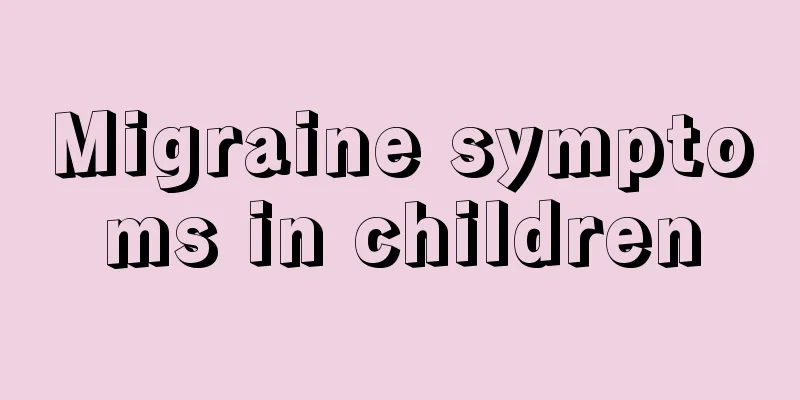How to treat viral rashes in children

|
During the change of seasons, the temperature and air will be affected, especially during the transition from winter to spring, when all things come back to life, including viruses. At such times, parents must take precautions against their respective viruses to prevent their children from contracting certain diseases. When children are infected with the virus, some rashes will appear on the skin surface, and the symptoms will also be different. Contraindications for viral rashes in children: 1. Don’t catch: Don't scratch when you feel itchy. It will not only fail to relieve the itch, but will make it worse. Scratching the area will increase the temperature and cause the blood to release more histamine (allergens), which will make the condition worse. 2. Do not apply heat: Applying heat once it itches is another form of stimulation, because heat dilates blood vessels and releases more allergens. 3. Pay attention to your diet: Avoid eating foods containing artificial additives, eat more fresh fruits and vegetables; eat less fried, deep-fried or spicy foods; eat more fresh fruits and vegetables rich in vitamins; eat more alkaline foods. 4. Recuperation and Rest: Pay attention to rest, reduce stress, avoid overwork, and exercise moderately. Prevention of viral rashes in children (1) The most important thing to prevent viral infection is to strengthen your own health care, maintain a regular lifestyle, avoid direct contact with carriers, and avoid using the same washbasin, towel, and other items as carriers. (2) During the epidemic, take your baby to public places as little as possible or avoid going to public places as much as possible. (3) Children’s diet is also very important. Children should be given plenty of water to drink and eat light, easily digestible, high-protein, and high-vitamin foods. (4) When the weather gets warmer, be sure to take your baby to exercise to fundamentally block the invasion of the virus. Routine care (1) Keep the room well ventilated. Children with the disease are generally required to rest in bed, so the room should be warm, quiet, and clean, the air should be fresh, and attention should be paid to the temperature and humidity. Windows can be opened for ventilation 2 to 3 times a day, but cold air should not be allowed to blow directly on the child. (2) Children should not wear too many clothes The quilt should not be too thick to prevent the child from having high fever convulsions due to heat not being able to dissipate. At the same time, keep your eyes, nose, mouth and ears clean and avoid strong light stimulation. (3) Make sure your baby can easily digest the food Eat nutritious food, drink plenty of water, eat more fresh fruits, and supplement with adequate vitamins. |
<<: Will skin care products be absorbed by the fetus?
>>: What should I do if my child has laryngitis and cough?
Recommend
What to do if your 4 year old is rebellious?
As children grow up, they will show some rebellio...
Symptoms of baby laryngitis, common acute laryngitis in children
The most common type of laryngitis in babies is a...
Is it normal for a baby girl to have leucorrhea? How to provide care
Nowadays, many newborn baby girls occasionally ha...
What should I do if my child grows too fast?
Parents are very concerned about their children&#...
How to wash hair for a four-year-old girl
When the baby is growing, parents need to pay spe...
What to do if your baby has a runny nose and difficulty breathing
We all know that babies often have a runny nose w...
What calcium supplements should children take to grow taller?
We all know that calcium supplementation helps ch...
How to care for a three-month-old newborn
As we all know, a newborn baby needs the care of ...
What to do if hand, foot and mouth disease recurs
The weather in summer is quite hot, and it is als...
Can babies drink milk when they have a fever?
For babies, since their immune system is generall...
Why does my 6 month old baby keep shaking his head?
Six-month-old babies have gradually begun to adap...
Should children be circumcised?
Some parents feel very confused because they don’...
Two-year-old baby throws things in a tantrum
Two-year-old babies are in a critical period of g...
Reasons for children sweating while sleeping
Children sweating while sleeping is a problem tha...
What to do if your baby suddenly refuses to take the bottle
It is quite troubling for parents when their baby...









